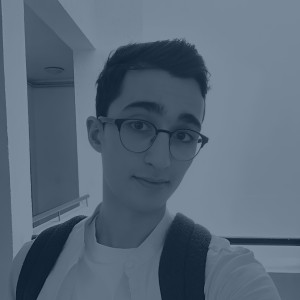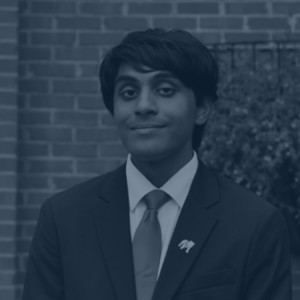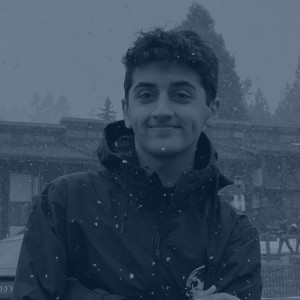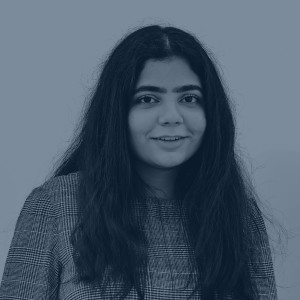Omar Ali, 24

Omar Ali, from Cairo, Egypt, did not get into programming until sophomore year of his electrical engineering program at Ain Shams University, but he has quickly made a name for himself within the hacker community. In the last year, he has completed the MLH Fellowship, contributed to several open-source projects, and has since gone on to work as an Admissions Specialist with Major League Hacking (MLH), helping to both interview and select the best candidates for the MLH Fellowship from the thousands of applications the program receives. Dedicating his free time to researching programming and computer-science-related subjects, as well as completing multiple online certifications, by his junior year, Omar had decided programming was his calling.
Omar discovered programming later in his academic career, and in his first programming course where he learned C++, he says “immediately fell in love with the idea that I can create something meaningful by just typing on my keyboard.” Continuing to develop his skills in C++, as well as learning front-end web development and Python, the ability to creatively solve problems using technology is something that appealed to Omar as both an electrical engineer and a programmer. Unsurprisingly, the hacker community seemed a perfect fit for someone as dedicated to programming as Omar.
He is active in a number of communities, participating in the Ain Shams University’s Energy Sustainability Team and STP, for instance, as well as being active in the hacker community. Stumbling upon the MLH community while browsing a Facebook group for computer science and engineering enthusiasts, Omar was immediately hooked. Through the MLH Fellowship, he has been able to grow as a programmer enough that he is planning on pursuing a career in computer science instead of the path he had initially been set on of electrical engineering. Omar says, “the Fellowship and the hacker community provided me with a platform full of guidance, mentorship, and companionship.” His experience in the fellowship allowed him to collaborate with fellow hackers from Brazil, India, Pakistan, Nigeria, Italy, the UK, and Moldova, and Omar says he still keeps in touch with all of them.
His experience in the hacker community has prepared him well for his post-college career. “The fellowship didn’t just turn me into a better engineer, but into a better human being as well.” As one of the first Egyptians to join the MLH community, Omar has inspired other Egyptian students to pursue a career in tech and join the MLH community; Omar’s own little brother, Mahmoud, was inspired to apply for the MLH Fellowship, and has actually become a Pod Leader, helping students as they complete their own Fellowships! Omar is proud to say that he has helped “other aspiring students to join the hacker community and to have the once-in-a-lifetime experience” that he’s had. In addition to his time in the MLH Fellowship, he has secured his first full-time position as a back-end engineer. Omar looks to stay involved in the hacker community after graduating college, continuing to help newer hackers find their way.
Quick Facts
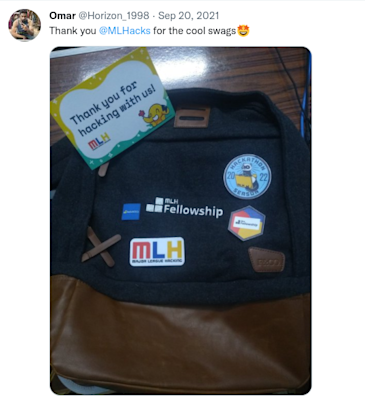
Omar Ali, 24

Omar Ali, from Cairo, Egypt, did not get into programming until sophomore year of his electrical engineering program at Ain Shams University, but he has quickly made a name for himself within the hacker community. In the last year, he has completed the MLH Fellowship, contributed to several open-source projects, and has since gone on to work as an Admissions Specialist with Major League Hacking (MLH), helping to both interview and select the best candidates for the MLH Fellowship from the thousands of applications the program receives. Dedicating his free time to researching programming and computer-science-related subjects, as well as completing multiple online certifications, by his junior year, Omar had decided programming was his calling.
Omar discovered programming later in his academic career, and in his first programming course where he learned C++, he says “immediately fell in love with the idea that I can create something meaningful by just typing on my keyboard.” Continuing to develop his skills in C++, as well as learning front-end web development and Python, the ability to creatively solve problems using technology is something that appealed to Omar as both an electrical engineer and a programmer. Unsurprisingly, the hacker community seemed a perfect fit for someone as dedicated to programming as Omar.
He is active in a number of communities, participating in the Ain Shams University’s Energy Sustainability Team and STP, for instance, as well as being active in the hacker community. Stumbling upon the MLH community while browsing a Facebook group for computer science and engineering enthusiasts, Omar was immediately hooked. Through the MLH Fellowship, he has been able to grow as a programmer enough that he is planning on pursuing a career in computer science instead of the path he had initially been set on of electrical engineering. Omar says, “the Fellowship and the hacker community provided me with a platform full of guidance, mentorship, and companionship.” His experience in the fellowship allowed him to collaborate with fellow hackers from Brazil, India, Pakistan, Nigeria, Italy, the UK, and Moldova, and Omar says he still keeps in touch with all of them.
His experience in the hacker community has prepared him well for his post-college career. “The fellowship didn’t just turn me into a better engineer, but into a better human being as well.” As one of the first Egyptians to join the MLH community, Omar has inspired other Egyptian students to pursue a career in tech and join the MLH community; Omar’s own little brother, Mahmoud, was inspired to apply for the MLH Fellowship, and has actually become a Pod Leader, helping students as they complete their own Fellowships! Omar is proud to say that he has helped “other aspiring students to join the hacker community and to have the once-in-a-lifetime experience” that he’s had. In addition to his time in the MLH Fellowship, he has secured his first full-time position as a back-end engineer. Omar looks to stay involved in the hacker community after graduating college, continuing to help newer hackers find their way.
Quick Facts

